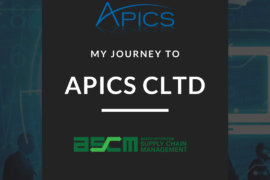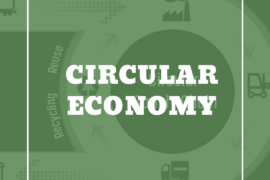For some time now I would like to write a post on a subject that I consider so important in the SAP market.
In fact, it is not really a specific subject, but rather a way of looking at the career.
Like me, I am sure that a large majority of people started their careers in the SAP market directly or coming from areas that had little or nothing to do with the business area related to the module in which they chose to work.
In my case, I started my career in technology at 16, worked as a Visual Basic programmer, then worked in the telecommunications market (CISCO), went back to technology at 21, working with COBOL (that old language), and finally went to SAP act in the MM (Materials Management) module.
As you can see, at no time did I have contact with the logistics area itself (Inventory, Purchasing, etc.) and ended up learning all the processes related to MM working on the projects. (It was not an easy task).
However, it need not be so. There are other ways.
Of course, for consultants who have already come from business areas and chose to work in a module within SAP in which they were already very familiar with the business processes, great. Certainly, your life was easier.
However, what I will talk about in the next lines can be very useful both for professionals who are already consultants who did not have any business knowledge, or for consultants who have knowledge of the business area, or even for professionals who want to start their careers in the SAP world.
After working for so many years in the SAP area, today I see this world a little differently than I did a few years ago.
To be a highly qualified and prepared professional, a good consultant cannot only know the SAP system well, its functionalities, configurations, etc.
This professional needs to have several other knowledge, such as second and third language, write well, make good presentations, and MAINLY know the business processes and their proper integration with other processes and modules within the system.
What is APICs?
I believe that many people do not know APICs.
APICs is the most recognized institution globally in the Supply Chain area and provides extremely interesting training and certifications for professionals working in the Supply Chain area.
Check the website for more details: https://www.apics.org/
However, for professionals working in the SAP market, more specifically within the field of Supply Chain (MM, SD, EWM, TM, PP), I find the materials and certifications from APICs very interesting.
APICs Certifications
I have been investigating APICs certifications for some time, as my professional goal for the next 5 years is to work in a large part of the Supply Chain branch within SAP (MM, SD, EWM, and TM), but for that, in addition to studying the modules within SAP, I am constantly working on my business process base.
In addition to the MBA in Supply Chain that I am taking at the moment (it has been an incredible experience), I have been deciding which certification to choose for a few months and decided to take the CLTD.
Below, I want to show you the options that APICs offers for certifications and talk a little about them:
https://www.ascm.org/learning-development/certifications-credentials/

As you can see above, the certifications look very interesting about their content.
CPIM is a certification more focused on the area of planning and production (in addition to several other topics).
CSCP is geared towards the Supply Chain professional and covers topics such as:
- Supply Chain Design
- ERP/APS/WMS/TMS – Not so deeply as in CLTD
- Supply Planning and Execution
- Procure and Deliver Goods and Services
- Demand Management
- Forecasting
- Warehouse Management
- Reverse Logistics
- S&OP
- KPIs
- Etc
The CLTD certification (which I will start very soon), is aimed at Supply Chain professionals, with a greater focus on Logistics, Transport, and Distribution. We will find topics like:
- Logistics and Supply Chain Overview
- SCOR Model
- Logistics Costs
- Risk Management
- Lean Logistics
- Capacity Planning
- Demand Management
- MPS/MRP/ERP/DRP
- Sourcing and Procurement
- Order Management
- CRM
- SRM
- Customer Service Management
- Inventory and Warehouse Management
- Warehousing
- Packaging
- Transportation
- 3PL/4PL
- Global Logistics
- Customs
- Logistics Network Design
- Reverse Logistics
- Etc
As you can see, the content is just incredible.
You can see more details directly on the APICs website.
How to get certified?
The APICs certification process is very interesting.
As you can see in the link below:
https://www.ascm.org/learning-development/certifications-credentials/
When you click on “Explore …” a lot of information will appear, including the price.
You will have two paths to follow.
The first is to buy only the exam voucher and study on your own and the second is to buy the “bundle” that has the certification voucher and all the preparatory material (printed and online) for the exam.
Honestly, I believe it is better to acquire the bundle for better use of the learning experience.
The values vary a little depending on the time of year, and APICs usually have webinars where it is explained in more detail about the certifications.
In fact, they usually release a 10% discount for people who participate in the webinars (a good discount).
Final Hint
I want to take this opportunity to give a final tip given to me by one of our readers directly from France (Jean Yves) about a great APICs application on terms in the Supply Chain world.
The same is called “APICs Dictionary” and can be downloaded free of charge directly from your cell phone.
I’ve been using it for the past few days and I loved the app.
Conclusion
I hope you enjoyed our first post of the year 2021 on a subject so important to our careers.
I want to take this opportunity to give a special thanks to Jean Yves, because in addition to the tip about the application, he helped me to obtain additional information about the certification, in addition to telling me about his own experience in the APICs certification process.
In addition, I also thank Selma Ferreira, for giving me several incentives to pursue this certification.
If you have any suggestions (including subjects you would like to read about), feel free to send an email to sapsteps@sapsteps.com.
A big hug,
Bruno César


